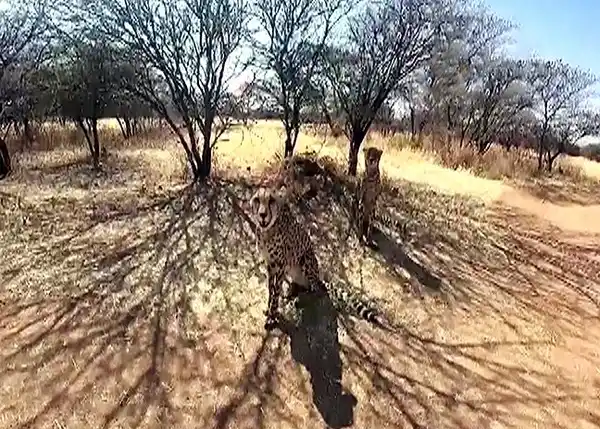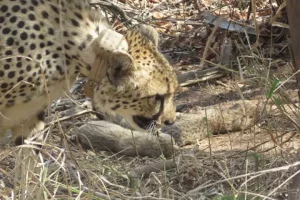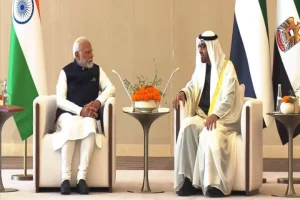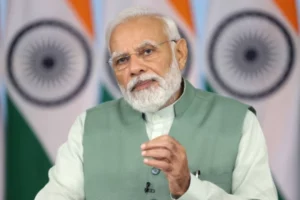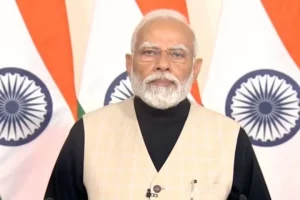The Ministry of Environment, Forests and Climate Change released two male cheetahs from quarantine into a bigger acclimatisation enclosure at the Kuno National Park in Madhya Pradesh on Saturday. The other six cheetahs will be released into the acclimatisation enclosure in phases.
These eight cheetahs had been brought to India in September under the ambitious cheetah reintroduction programme from Namibia. All eight cheetahs are reportedly health and adjusting well to Indian conditions, where they are being fed buffalo meat.
Prime Minister Narendra Modi tweeted video of the two new cheetahs being released into the bigger enclosure at Kuno. “Great news! Am told that after the mandatory quarantine, 2 cheetahs have been released to a bigger enclosure for further adaptation to the Kuno habitat. Others will be released soon. I’m also glad to know that all cheetahs are healthy, active and adjusting well,” he tweeted.
Great news! Am told that after the mandatory quarantine, 2 cheetahs have been released to a bigger enclosure for further adaptation to the Kuno habitat. Others will be released soon. I’m also glad to know that all cheetahs are healthy, active and adjusting well.
pic.twitter.com/UeAGcs8YmJ
— Narendra Modi (@narendramodi) November 6, 2022
On Sunday, Modi expressed his delight over the release of two cheetahs in the bigger enclosure and said that all the cheetahs are healthy and adjusting well.
The cheetahs were released by the Environment Ministry after receiving a no-objection certificate from the Ministry of Animal Husbandry that the cheetahs do not suffer from infectious diseases.
India has undertaken one of the most ambitious international wildlife conservation programmes by reintroducing the cheetah. The Project Cheetah initiative is being led by the Indian government in collaboration with international experts. The wild animal is being released according to International Union for Conservation of Nature (IUCN) guidelines.
To ensure the success of the programme, authorities have added several layers of security to prevent poaching. These include providing radio collars on all cheetahs, the use of drones and a dedicated team that monitors the areas 24×7.
Included among the big cats, the cheetah is believed to be the fastest animal with a speed of 100-120 km per hour.
Cheetahs were driven to extinction during the forties by the British and the princely rulers. The last three cheetahs were hunted in 1947-48 by the Maharaja of Korea in Chhattisgarh. India formally declared the animal to be extinct in 1952.
Also read: PM Modi says it’s a historic moment for India as Cheetah is back after 7 decades






